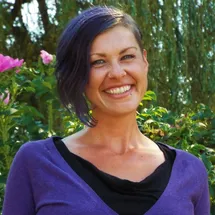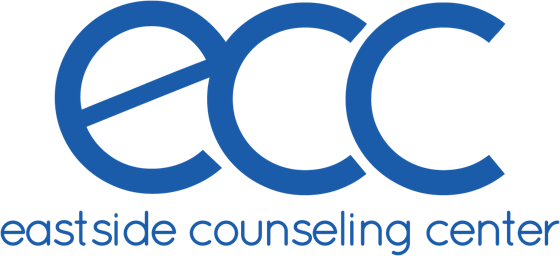Proudly serving Washington State.

Sarah Bellamy
MSW, LICSW
Limited availability
Telehealth only
Adult individuals (18+)
Philosophy of Care
I use a holistic wellness approach and framework to therapy, incorporating different tools, strategies, and paths toward healing, transformation and a healthy lifestyle. Focusing on finding and maintaining balance in the mind, body, and spirit, I support people as they walk through and make sense of whatever is holding them back and preventing them from living their best lives. I often borrow from the skills of DBT and CBT, starting with a framework of mindful awareness and building a strong foundation of self-love and self-care to support the work and dedication it takes for true life transformation to occur. Bringing together the impacts of trauma, life circumstances and general overwhelm, early conditioning and attachment, and personal characteristics and lifestyle, I help individuals understand themselves deeper, heal wounds that are keeping them stuck, and grow into their potential. Each of us has value, worth, and wisdom within us - sometimes we just need someone to help us uncover it and lean into it.
Together we will help discover and understand the connection between your thoughts, feelings, and behaviors, and learn how to make shifts in awareness and action to learn new ways of handling situations both with yourself and others.
I have personal experience healing from disordered eating and have a history of working with individuals experiencing anxiety, depression, addiction, general life stress and overwhelm, low self-esteem and self-worth, shame and guilt, and general life dissatisfaction. Like any relationship, trust and honesty need to be the foundation of our partnership - this is a collaborative process we will journey on together. My goal as your clinician is to make you feel heard, understood, and valued, and that I am able to provide you a safe space, honest feedback and support, and authentic relatability and compassion. Each person is on a different journey, seeking different things - from relief and validation, to clarity and understanding, to acceptance and growth. I take great pride and care in being a part of your journey and I look forward to walking alongside you as you discover what it is you seek.
Education and Licensure
MSW, Master in Social Work, University of Washington Tacoma, 2010
BA in Comparative Sociology, Communication Minor, University of Puget Sound, 2005
LICSW - Licensed Independent Clinical Social Worker Candidate, Presently Awaiting Exam
AAC - Washington State Agency Affiliated Counselor, 2005-2021
MHP - Mental Health Professional, 2005-present
Specialties and Modalities
Addiction
Anger Management
Antisocial Personality
Anxiety
Behavioral Issues
Codependency
Coping Skills
Depression
Eating Disorders
Emotional Disturbance
Family Conflict
Life Coaching
Life Transitions
Obesity
Peer Relationships
Relationship Issues
Shame and guilt
Self-Harming
Self Esteem
Sleep or Insomnia
Stress
Trauma and PTSD
Weight Loss
Mental Health Disorders
Mood Disorders
Thinking Disorders
Treatments
Acceptance and Commitment (ACT)
Art Therapy
Attachment-based
Coaching
Cognitive Behavioral (CBT)
Compassion Focused
Dialectical (DBT)
Eclectic
Emotionally Focused
Experiential Therapy
Gottman Method
Humanistic
Integrative
Interpersonal
Intervention
Mindfulness-Based (MBCT)
Motivational Interviewing
Person-Centered
Reality Therapy
Relational
Schema Therapy
Solution Focused Brief (SFBT)
Somatic
Strength-Based
Trauma Focused
Clientele
Individuals: Adults
Generalized Anxiety Disorder (GAD)
GAD affects 6.8 million adults, or 3.1% of the U.S. population, yet only 43.2% are receiving treatment.
Women are twice as likely to be affected as men.
GAD often co-occurs with major depression.
Panic Disorder(PD)
PD affects 6 million adults, or 2.7% of the U.S. population.
Women are twice as likely to be affected as men.
Social Anxiety Disorder (SAD)
SAD affects 15 million adults, or 6.8% of the U.S. population.
SAD is equally common among men and women and typically begins around age 13.
According to a 2007 ADAA survey, 36% of people with social anxiety disorder report experiencing symptoms for 10 or more years before seeking help.
Specific Phobias
Specific phobias affect 19 million adults, or 8.7% of the U.S. population.
Women are twice as likely to be affected as men.
Symptoms typically begin in childhood; the average age-of-onset is 7 years old.
Treatment For Anxiety
Psychotherapy or “talk therapy” can help people with anxiety disorders. To be effective, psychotherapy must be directed at the person’s specific anxieties and tailored to his or her needs.
To get an appointment scheduled with
Sarah Bellamy Now
Contact Hours
Monday - Friday
9:00 am - 5:00 pm
Call Us
Kirkland: (425) 242-6267
Bellevue: (425) 590-9419
Our Offices
Kirkland Office
625 4th Ave, Suite 203
Kirkland, WA 98033
(425) 242-6267
Bellevue Office
4122 Factoria Blvd SE, Suite 405
Bellevue, WA 98006
Email Us
Helpful Links
© 2023 Eastside counseling center
© 2023 Eastside counseling center
Privacy Policy
Privacy Policy


